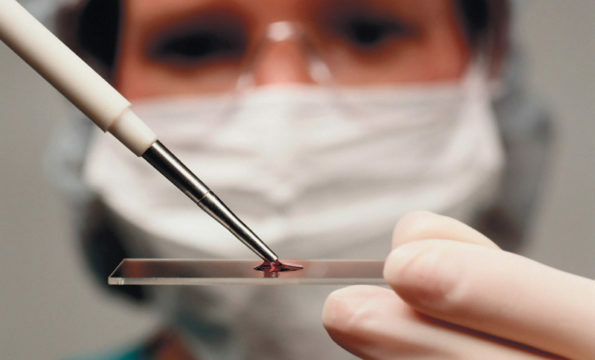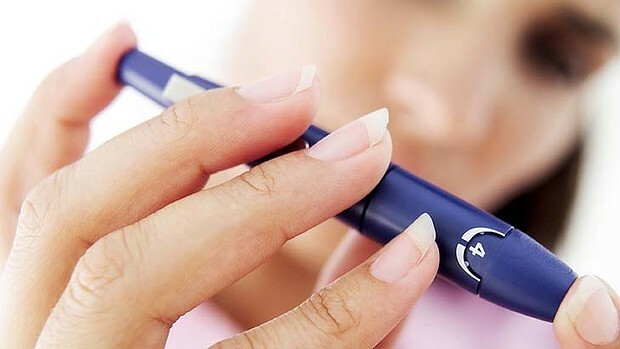Diabetes develops due to the fact that the functioning of the pancreas is disrupted. The most important clinical manifestations of this pathology are such symptoms as frequent desire to empty the bladder, constant thirst and hunger. These signs should immediately alert the person and become an occasion for an immediate visit to the doctor. In any case, each person should better know why developing frequent urination with diabetes.

Causes of the disease
Specialists identify two main causes that cause diarrhea in patients with frequent urination. The first is that the patient's body is diligently trying to remove excess glucose. When the content of this substance is high, the kidneys do not pass it.
In order to remove glucose from the body, a large amount of water is needed. Because of this, and there is a strong desire to drink from patients, hence, and frequent emptying of the bladder. At the same time, the peak of going to the toilet is night time, which should also be noted.
In addition, when the disease progresses, the nerve cells are affected, resulting in the patient's body being deprived of the ability to control the tone of the bladder. Such a malfunction is irreversible, neither physical exercises nor dietary nutrition can restore it. Also, people suffering from diabetes mellitus, several times the risk of contracting infectious pathologies developing in the bladder.
How does urination increase?
When a patient develops frequent urination with diabetes, he can feel different unpleasant manifestations. The patient complains that:
- A frequent desire to groom in the toilet occurs regardless of the time of day.
- A large volume of urine is allocated, in some cases it can be 3 liters or more.
- Urine is excreted often, but little by little.
- Most often I want to use the toilet at night.
- The ability to control urine output at night is lost.
In addition to the signs of rapid urination, patients note a deterioration in overall health, body weight loss, abdominal pain, a feeling of nausea, vomiting, a sense of the odor of acetone in the air. Based on who the patient is, whether male or female, other specific symptoms may appear.
What research needs to be done?
First of all, a patient who has noticed in himself a frequent desire to empty a bladder, it is necessary to visit such specialists as an endocrinologist and nephrologist. The first doctor will determine what sugar content is present in the blood, how the thyroid gland functions and in what state. In addition, he will appoint a survey of this body, namely it will be necessary to undergo laboratory studies, ultrasound. Depending on what the results show these diagnostic measures, it will be clear whether to go to the nephrologist.
But in any case, doctors recommend visiting this specialist, even if the research did not show anything terrible. After a rapid urination is a serious pathology, which must be identified and corrected in a timely and correct manner.
By appointment, this doctor will need to undergo a laboratory examination of blood, urine. This will help determine the integrity of these biomaterials. You will also have to go to an ultrasound to check the kidneys.
Thanks to these methods of examination, a specialist will be able to select the optimal treatment plan, considering all the details of the thyroid and kidney conditions. In fact in this case it is necessary to act quickly and not to be mistaken with the scheme of therapy of the disease.
How is pathology treated?
The scheme of therapy for rapid urination and diabetes mellitus itself implies a fairly long treatment process, which should always be monitored. If necessary, the specialist makes changes in the treatment plan, taking into account the development of the disease and the patient's condition.

In order to forget about frequent urination, you should:
- Strictly adhere to the rules of dietary nutrition. It is necessary to eat a balanced diet, eat more vegetables, fruits, meat and other useful foods. Diet helps the body better perform its functions and stimulates metabolic processes.
- Maintain medications for the purpose of lowering or increasing blood sugar. As a rule, they do not affect the functioning of the kidneys.
- To drink hormones at the first stage of pathology. But it is worth noting that they do not help all patients suffering from diabetes. In this regard, you will need to first make a test to determine the compatibility of steroids and other drugs.
If the therapeutic plan is designed correctly, then frequent urination will gradually recede, becoming more sparing. If after 1-2 months the patient does not feel relief of this symptom, then the treatment regimen needs to be changed.
Sometimes to fully get rid of this manifestation of the disease is impossible. In such cases, doctors recommend symptomatic treatment. It allows to reduce the severity of clinical manifestations, so that the patient can lead a normal life.
Preventive measures
Preventing the development of pathology is always easier than curing it. To do this, it is enough to lead a healthy lifestyle, adhering to some rules that significantly reduce the risk of the disease and its clinical symptoms.
Specialists distinguish two groups of preventive measures:
- Primary actions. They are aimed at reducing the likelihood of diabetes mellitus to zero. These include the following:
- It is necessary to identify those children who are already at risk for developing diabetes at an early age, and then carefully and regularly monitor their health.
- Prevention of the development of infectious diseases is a good preventive measure, for which vaccinations and reception of funds are carried out, the purpose of which is to improve the functioning of the immune system.
- It is necessary to follow the rules of nutrition, young children should be breastfed for up to 1-1.5 years, if possible, and should not give babies at this age to drink cow's milk.
- You also need to prevent the emergence of stressful situations and develop resistance to them.
- Secondary actions. They are undertaken when a person is already sick with diabetes mellitus, and it is required to prevent the occurrence of complications of this pathology. In this case it is necessary:
- Always keep blood sugar in check by doing the test throughout the day.
- Follow dietary rules.
- Do not overload the body with physical exercises.
All these preventive measures will avoid the development of diabetes mellitus or its adverse effects. This is very important, because non-compliance with all the rules of treatment of this pathology can cause a variety of complications up to a lethal outcome.
The rapid process of urination is one of the main signs that a person develops diabetes mellitus. This symptom is necessarily accompanied by a constant feeling of thirst and hunger. Such manifestations are a serious reason for an immediate visit to the doctor.




